
In the mid-1800s, some Puerto Ricans began to demand more freedom from Spain. They wanted an end to high taxes and tariffs. They wanted greater freedom of speech and civil rights. They wanted to abolish slavery. But Spanish leaders and landowners refused to consider any reforms. Activists who supported breaking ties with Spain were imprisoned or exiled.
Despite Spain's harsh treatment, pro-independence rebels organized an armed rebellion. The movement brought together many criollos, who had been born in Puerto Rico and who had developed a sense of national identity with the island. On September 23, 1868, the rebels seized the city of Lares. Although initially successful, the rebels were poorly armed and poorly trained.
Denne historien er fra March 2023-utgaven av Cobblestone American History Magazine for Kids.
Start din 7-dagers gratis prøveperiode på Magzter GOLD for å få tilgang til tusenvis av utvalgte premiumhistorier og 9000+ magasiner og aviser.
Allerede abonnent ? Logg på
Denne historien er fra March 2023-utgaven av Cobblestone American History Magazine for Kids.
Start din 7-dagers gratis prøveperiode på Magzter GOLD for å få tilgang til tusenvis av utvalgte premiumhistorier og 9000+ magasiner og aviser.
Allerede abonnent? Logg på
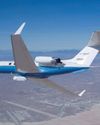
Eye in the Sky
An interview with Joe Piotrowski
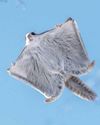
Airborne Animals
Humans have taken to the skies in balloons, gliders, and airplanes-but we're not alone among the clouds. Animals of all sorts have evolved to harness wind power.
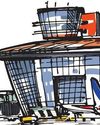
TAKING OFF
The Wright brothers expected airplanes to “take off,” but even they might be amazed at the way the airline industry has become big business. In the past, it was expensive to send something by plane.

GROWTH OF AN INDUSTRY
After their historic flight at Kitty Hawk in 1903, Wilbur and Orville Wright returned to Dayton, Ohio. They spent the next few years making adjustments and building additional versions of their powered aircraft in their bicycle shop.
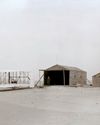
WHY KITTY HAWK?
The Wright brothers searched carefully for the best place to test their gliders and flying machines. Their main concern was for good, steady winds. But they also hoped to find a remote location to allow them to perform tests away from the public eye.
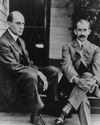
Two Brothers From Ohio
Most people do not realize that the Wright brothers—Wilbur, born in 1867, and Orville, born in 1871—performed various scientific experiments before inventing their aircraft. For as long as anyone in their hometown of Dayton, Ohio, could remember, the Wright boys had worked on mechanical projects.
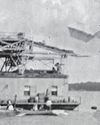
A Helping Hand
May 6, 1896. A group of people who had gathered beside the Potomac River, just south of the U.S. capital, grew quiet. Then, it erupted in cheers as a small, unmanned aircraft took to the skies and flew for more than half a mile. The flight came seven years before the Wright brothers’ first manned, powered flight. The inventor of the aircraft was Dr. Samuel Pierpont Langley.
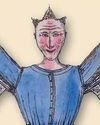
THE IDEA MEN
People dreamed of flying thousands of years before the Wright brothers found success near Kitty Hawk, North Carolina. These dreamers, such as Leonardo da Vinci, studied birds flying and imagined how humans might do the same—if only they had wings. Other men developed a more hands-on approach to the topic. Early inventors made wings of cloth, glue, and feathers and tied these creations to their arms in an attempt to imitate nature.
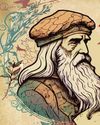
Da Vinci's 4 Designs
Have you ever wondered how a bird flies? Leonardo da Vinci (1452–1519) did. He thought that understanding how a bird flies would provide the key to human flight. So, what did da Vinci learn from birds?
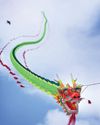
Silken Wings
Seven hundred years before the Wright brothers began experimenting with human flight, the Chinese had already mastered its secrets—with kites.